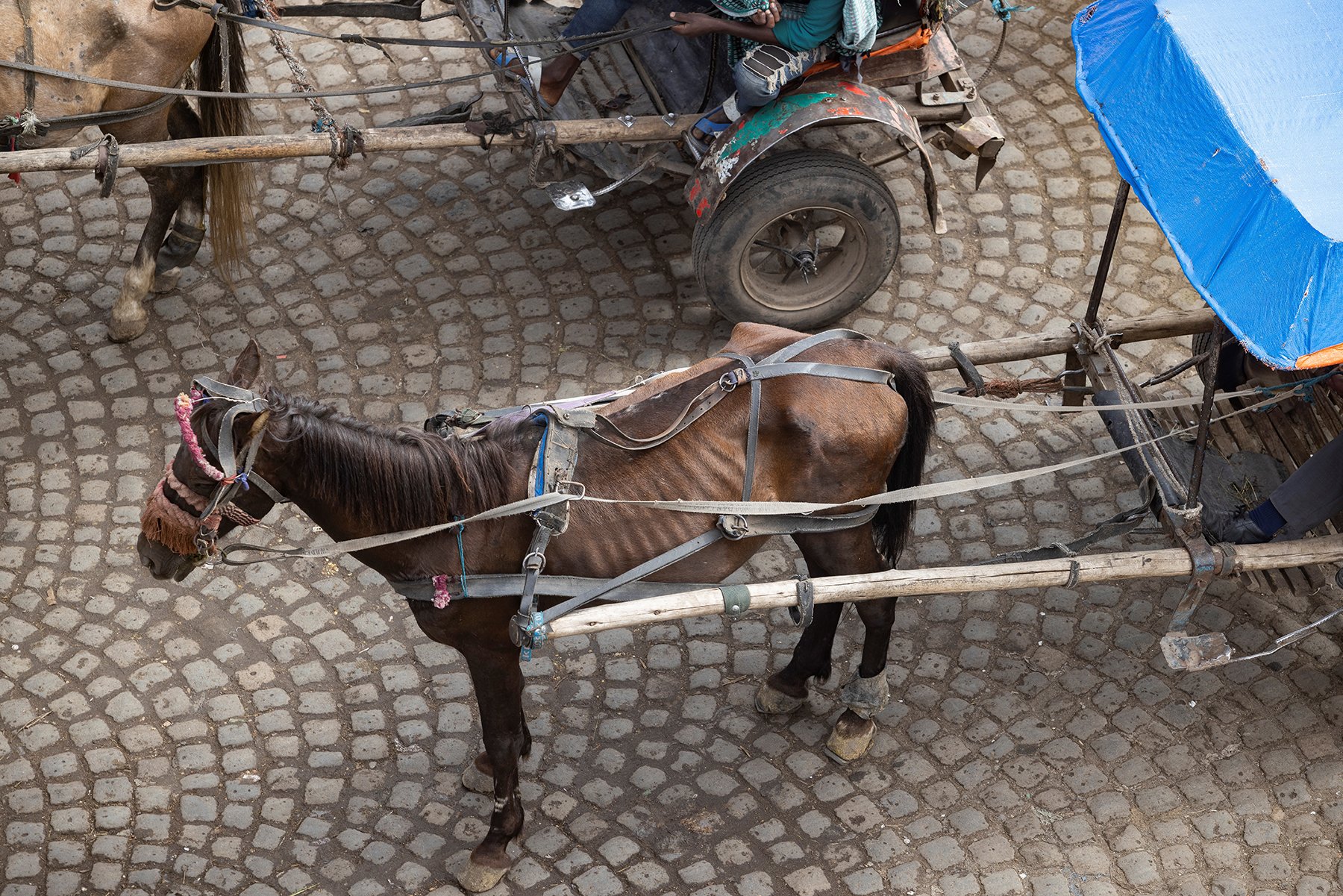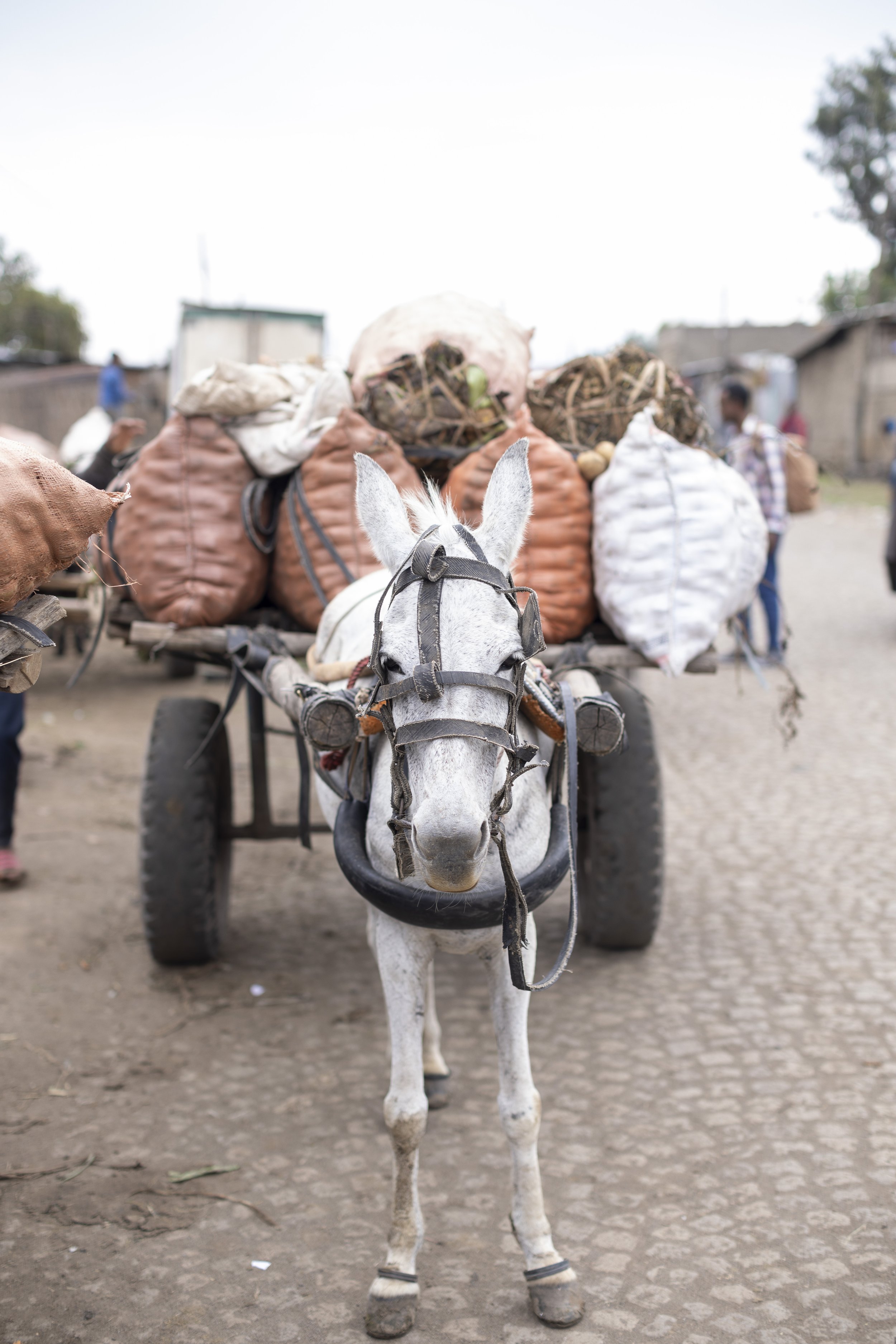One Trip. One Summer. One Story.
“Donkeys are like cars in Ethiopia. They are everywhere. But they are dying because they have nowhere to get first aid. They don’t even have pain relief for surgeries.”
- Robert Reyers, 22 years old, USA -
Let me tell you a bit about myself. I am still in university. I grew up around horses and donkeys, spending every afternoon after school at the barn. To call myself an animal lover would be an understatement- there are times when I think I like animals more than people! So, it was a natural step to volunteer for Brooke USA as co-chair of the Young Professionals Group. My first project raised funds for a water trough in rural Ethiopia. I felt so passionate about this project that I wanted to go and see the work first-hand. Some college students go to Daytona Beach, but I was headed to Central Ethiopia.
My trip focused on two towns, Halaba where Brooke USA funding has been in place for seven years, and Shashemenie which is a new project site for Brooke USA funding. Both are areas with limited veterinary care and resources. The towns I visited, like most of Ethiopia, are communities where agriculture is the main source of income. People still plow their fields with oxen and plant seeds by hand. Extreme poverty and droughts have taken their toll on working equines by forcing them to work longer hours with less available food.
Animals are dying from illnesses and injuries that are simple to treat. They just can’t reach veterinary care in time; clinics are miles away.
Photos of working equines in Shashemenie Photo Credit: Bill Bradshaw
A donkey in rural Ethiopia is like a car in America. Did you know that recent census data puts the total number of equines in Ethiopia at 13,323,172 (FAO Livestock Census 2020). Thus, Ethiopia has the largest population of equines in Africa and the second-largest equine population in the world after China.
Our first stop in Halaba was a visit to a worksite where Leon Bentham, a master farrier from Brooke UK, was teaching a farriery course to five students. I was stunned to learn that villagers had once been making horseshoes using rubber tires and carpenter nails. Leon was showing them how to shoe using locally sourced steel.
Bottle cap brush—an improvised tool.
The Bit Exchange.
“Detraining is just as important as training.”
Leon told me that before Brooke’s training, many farriers thought they needed to trim hooves down to where blood showed.
I know you’ll agree with me that we cannot allow working equines to be treated in this way. I learned that these donkey owners just don’t know any better and that we are dealing with years of cultural misinformation as well as a lack of resources and the effects of extreme poverty. There were no veterinary services in Halaba before Brooke USA stepped in with funding from donors across the United States.
Next, we visited the Halaba donkey shelter and health post funded by Brooke USA, thanks to your support. My guide explained that before this shelter, villagers didn’t have somewhere safe to ‘park’ their donkeys, especially those who did not own their own homes. Ever tried renting a place to park your donkey?
Before the shelter was built, there was no respite from the sweltering heat, no access to water and limited feed. Not to mention Hyenas prowl at dusk, and thievery is common. The Halaba shelter has space for 180 donkeys! It also serves as a health post and has a feed and harness shop. It even has a classroom for workshops run by Brooke Ethiopia.
I saw how your donations are making a difference!
Halaba Shelter/Photo credit: Bill Bradshaw
We then went to Shashemenie, a town where Brooke USA funds have just started to be invested. No health post has been built yet. The difference in the animals between the two towns was night and day. You would agree with me if you were there. I saw overloaded donkeys with open wounds. Malnourished to the point, I could count their ribs from twenty feet away. It was heartbreaking to see.
Market towns like Halaba and Shashemenie are gathering places for remote villagers. Having health posts and market shelters in communities like these makes sense for a country like Ethiopia where thousands of working animals live scattered in rural areas without access to medical care. Animals are dying from illnesses and injuries that would be simple to treat. The sick animals just can’t reach veterinary care in time; clinics are miles away, too far for an injured animal to walk.
This is why Brooke USA needs supporters like you. Together, we can give these hard-working donkeys a better, healthier life.
While in Ethiopia, I learned that Brooke USA helped build three health posts like the one in Halaba but have not been able to open them because we need funds to buy supplies. That’s why I’m writing to ask you to donate today where I think it will matter most – let’s outfit these new health posts with basic medical supplies including pain blockers, antibiotics, syringes, and surgical scissors.
We estimate that we can serve over 11,000 equines a year at these health posts which can also offer water troughs and animal welfare education. We are looking to raise $21,588 to outfit them fully.
Can you please contribute today to give these hard-working equines access to medical supplies and the clean water they so desperately need?
I am hoping that with your kindness this holiday season we can fully supply these three health posts and have them open their doors in 2024.
Very Truly Yours,
Robert Reyers
Co-Chair, Brooke USA Young Professional Committee
P.S. I can’t imagine having surgery without pain medication, can you? Or having to walk miles in pain just to receive health care or water. We urgently need your donation to help stock these vital health posts as soon as possible. A monthly gift would allow Brooke USA to reach even more working animals.
Learn more about the Young Professionals Committee here.






